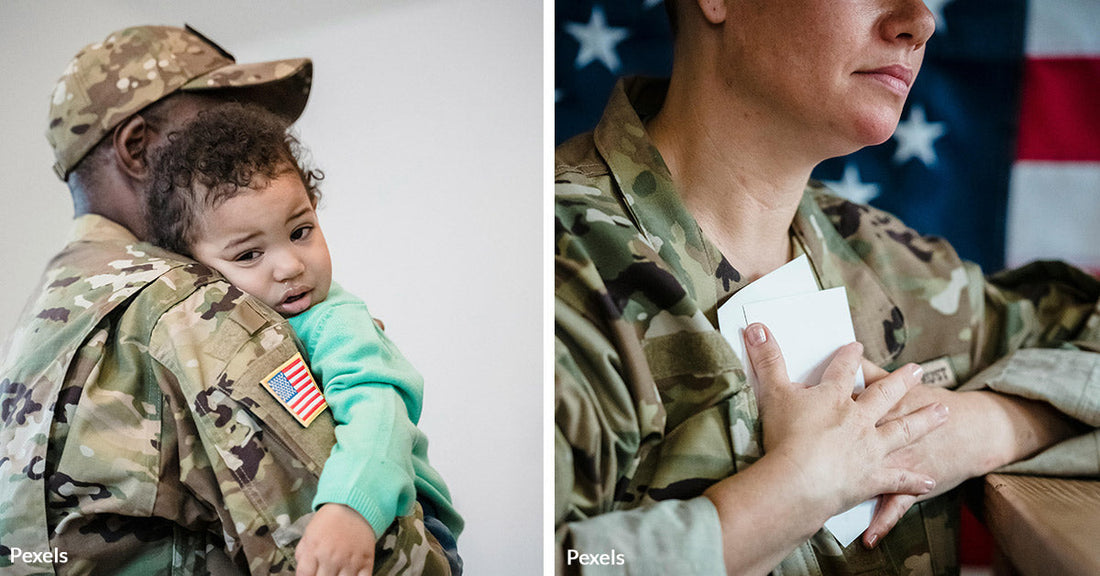Veterans Lose Critical Lifelines as Cuts Hammer Health Services
Matthew Russell
America’s veterans are expressing uncertainty and fear over recent moves by the Department of Government Efficiency (DOGE), which is led by Elon Musk. He serves as an unelected advisor under President Donald Trump, and his aggressive cost-cutting measures have reached the Department of Veterans Affairs. Some of those measures appear to threaten critical resources, including the Veterans Suicide Hotline.
Veterans and advocacy groups say this action is jeopardizing life-saving services, while officials in Washington insist the changes will not hurt veterans’ care.

Photo: Pexels
Unexpected Staff Reductions at the VA
Thousands of positions have been cut at the VA since the DOGE began making changes to the organizational chart. Administration leaders claim these are simple “efficiency” moves, yet veterans’ advocates warn that the layoffs are widespread and unpredictable.
A source told NPR’s All Things Considered that job losses appeared to happen “in haste.” They described a climate of tension: “One day you’re in, the next day you’re out.”
Some of those caught in the purge even say they are veterans themselves, underscoring a sense of betrayal among those who served.
These workforce reductions coincide with a hiring freeze, leaving positions unfilled and fueling confusion among VA employees. In some instances, workers received abrupt notices to pack up and leave. The advocacy group VoteVets reports that the so-called “DOGE Purge” has displaced thousands of veterans who served as federal workers. Some were assigned critical roles in research on cancer treatments, opioid addiction, prosthetics, and toxic burn pit exposures. Others handled direct patient care or benefits processing.

Photo: Pexels
Veterans Suicide Hotline in the Crosshairs
The greatest alarm centers on the Veterans Suicide Hotline, a crisis line that operates around the clock. In a climate where the national conversation highlights the tragic rates of veterans who die by suicide each day, any indication that hotline jobs would be cut sparked immediate backlash. Initially, calls for help emerged when certain hotline workers were told their positions were no longer secure, USA TODAY reports. Several employees on probationary status were released, but at least a couple of them were reinstated days later. That temporary gap still caused concern that veterans in crisis might call and not find someone on the other end.
Secretary Doug Collins of the VA insists no phone responders were ever let go. He was quoted in a VA press release as stating, “We did not lay off any Veteran Crisis Line responders.”
Even so, NewsNation has documented the outcry from members of congress who say the administration is trying to “scare” people into believing hotline workers are gone—while also acknowledging multiple whistleblowers from the VA who claim that colleagues associated with suicide prevention have indeed been targeted.

Photo: Pexels
Conflicting Accounts and Low Morale
While top officials say direct patient care and mental health services remain intact, employees fear otherwise. One doctor, in conversation with NPR, likened DOGE’s abrupt spending limits to “trolling,” because a crucial purchase card once had a $1 limit, rendering basic needs impossible. Meanwhile, WAND-TV reports how a Navy veteran fired from a different federal post risked losing health insurance that covered antidepressants and anxiety medications. These personal stories capture how quickly a single pink slip can ripple into a veteran’s life and endanger medical coverage or mental health support.
CBS News reports that as many as 10% of employees at the Substance Abuse and Mental Health Services Administration (a federal partner involved in the 988 hotline) have been terminated. Critics warn that the cuts might not immediately produce a crisis but will hinder future oversight and delay crucial updates to mental health programs.

Photo: Pexels
Leadership’s Response and Veterans’ Concerns
VA Secretary Collins argues that rumors of deeper cuts have been exaggerated. “We’re not cutting healthcare, we’re not cutting benefits,” he stressed on-air. He further claims that $98 million in annual cost savings can be redirected to care and services. Those figures are cold comfort to local VA staffers who, as USA TODAY reports, feel that morale is spiraling. Some staff do not believe official reassurances because they see colleagues escorted out, only to be briefly reinstated and then subjected to new rounds of scrutiny.
Veterans also question the conflicting messages. Grassroots organizations like VoteVets are hosting nationwide calls to demand answers. Participants argue the cuts threaten the same men and women who protected the country. Lawmakers, including Senators Tammy Duckworth and Richard Blumenthal, have raised concerns about the effect on urgent needs such as the crisis line and comprehensive healthcare access.

Photo: Pexels
Looking Ahead
While no one in authority has announced a rollback of all DOGE measures, a few singled-out programs found last-minute reprieves. For instance, some canceled research contracts were given a fresh “review” status. For now, it seems each move is subject to ongoing back-and-forth between VA officials and the White House. That leaves veterans, especially those at risk of self-harm, feeling uncertain about the future of the resources they rely on.
The broad message from veterans’ advocates is clear: the government’s cost-cutting might have unseen consequences, with catastrophic ripple effects. VA staff still speak of dedication to the “sacred mission,” but morale remains bruised after abrupt layoffs, canceled contracts, and rapid changes that undermine trust.
Officials insist that these actions will save millions of taxpayer dollars, while critics say the potential human cost is far too high. As the dust settles, veterans say they simply want to know that help—especially on the Suicide Hotline—will be there without fail when a life is on the line.
Click below to take action for our veterans.

